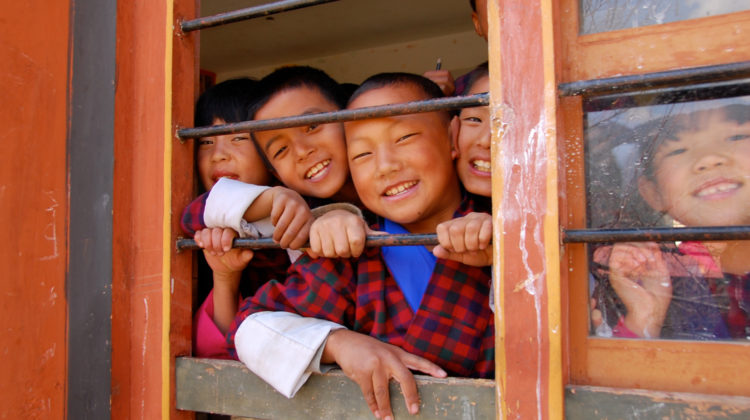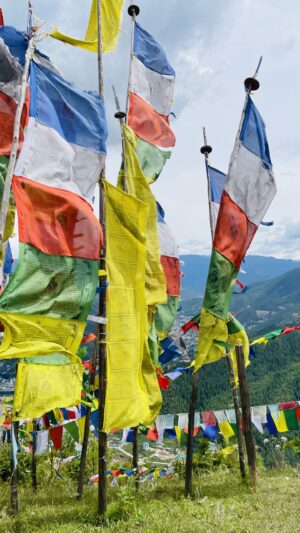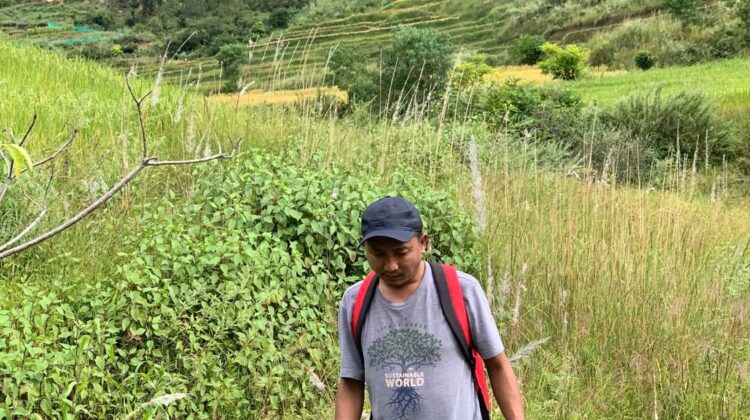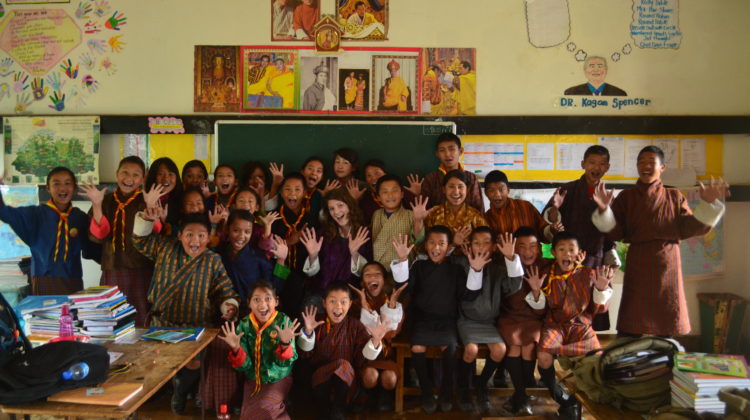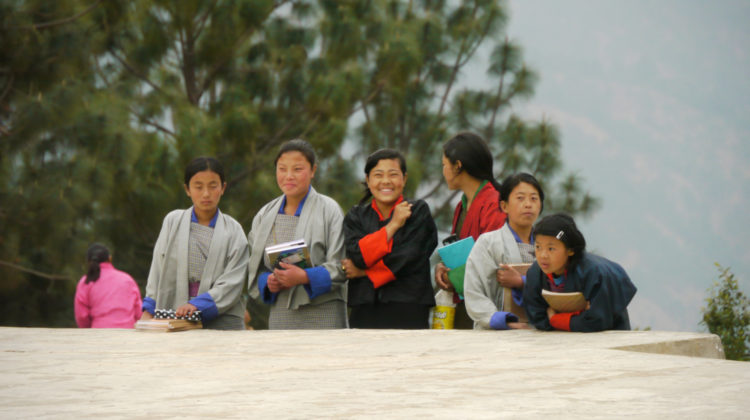Photo credit: Jeff Bellinger
March 20 is the International Day of Happiness. It can be difficult to figure out how to respond to such a day given the global challenges over the past year. Yet one of the things that has become evident is how a “happiness approach” to a society’s development can promote resilience in the face of a crisis like the coronavirus pandemic. Crisis and unexpected change are inevitable. The notion of resilience involves responding to such unexpected change in a way that does not undermine society. It involves absorbing the impacts of crisis and effectively bouncing back. Bhutan’s happiness-based response to COVID-19 demonstrates such resilience. Indeed, Bhutan’s COVID-19 response has received significant global attention. Major articles in The Atlantic and the Toronto Star as well as a Fareed Zakaria segment on CNN have all explored what Bhutan can teach the world about responding to the pandemic with resilience.
At the heart of Bhutan’s success is the nature of its national development strategy. Gross National Happiness, or GNH, is a development approach that is holistic, recognizing that health, socio- economic, ecological, cultural and good governance factors are interdependent. Recognizing and promoting interdependence among these factors is critical for the wellbeing of both individuals and society, which are inherently linked together. This departs from the traditional focus of development on increasing economic growth. While not without its benefits, a growth-focused approach largely does little on its own to build resilience in the face of crisis. The often chaotic American response early on during the pandemic is a good example. Bhutan’s happiness approach, however, focuses on the pandemic through a holistic lens that fosters resilience: An interdependent perspective encourages understanding and responding to the multiple aspects of the crisis beyond its immediate health impacts; recognizing the inherent links between individuals and society promotes a whole of society approach to public health behaviours; and effective, transparent leadership characteristic of good governance provides a focal point to educate, encourage and inspire.

What does Bhutan’s happiness approach look like in practice? How does it promote a resilient response to the pandemic? In many ways, Bhutan did what most other countries did: promote public health behaviours, engage in testing and contact tracing, put quarantines and lockdowns in place and provide material relief to individuals and businesses. Anchoring this approach to Bhutan’s GNH foundation of interdependence, interlinked individual and collective good, and effective leadership, however, promoted a more holistic response that brought government and society together as partners. Evidence of this can be found in multiple ways. The government extended its mandatory quarantine for those exposed to COVID-19 from the WHO recommended two weeks to three weeks to ensure the virus was contained. Moreover, government funding covered the costs of this quarantine while hotels offered themselves as quarantine centres. A program to ensure the population had adequate and accessible food was also put in place during lockdowns. Thousands of Bhutanese mobilized as part of a national volunteer brigade, known as De-Suung, to deliver food, educate on public health messages, hand out masks and patrol the border. Moving beyond the immediate health issues, leaders emphasized the need to maintain focus on incidental impacts of the pandemic such as mental health and reproductive health. Influencers were recruited to disseminate public messaging. Emergency government funding supported the creation of jobs for some who lost their livelihoods due to the pandemic. Politicians donated their salaries to support the pandemic response. Even the army was engaged to feed the stray dog population during lockdowns. And Bhutan’s response did not end at its borders. Support was extended to Bhutanese living abroad through the rental of apartments where needed and the redirection of flights to pick up and return expat Bhutanese to the country. In all of this, Bhutanese looked to and trusted their political leaders – particularly the King and the Prime Minister, a doctor – as they promoted a holistic and science-based response to the pandemic. Overall, trust in leadership combined with significant social cohesion – interdependence, individual/societal linkage and good governance in action – created the bedrock for Bhutan’s pandemic response.

The results speak for themselves. Bhutan has experienced only one death due to the pandemic. It occurred in early January 2021, 10 months after the country’s first case of COVID-19 was identified. As of this writing, total cases number 868 out of a population of approximately 750,000. The current daily number of cases is zero, as is the seven day average, with a total of only one active case. A national vaccination campaign is will begin in late March with vaccines secured from India and the COVAX facility, supported by an online registration system set up in February to promote an orderly roll out. Nearly 90% of those eligible for vaccination have already registered for the vaccination.
Bhutan’s experience illustrates an ability to better respond to the pandemic than many, if not most, of the countries of the Global North with more advanced, better funded health systems. Its experience shows that national wealth does not necessarily drive good decision-making or a nimble response when confronted by a crisis. A “happiness approach” that prioritizes a lens of interdependence, individual/societal interconnection, and good governance enables a holistic response that fosters resilience in the face of crisis. Bhutan has shown the rest of the world the value of such an approach.

